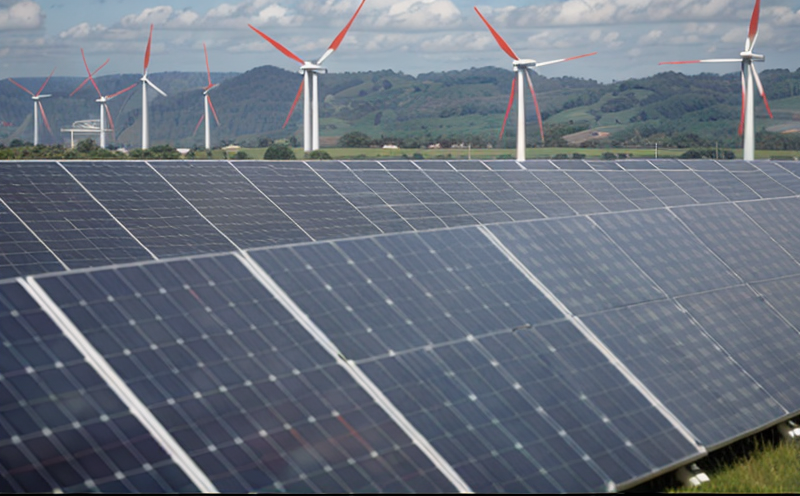Comprehensive Biomass & Bioenergy Resource Assessment
In today’s sustainable energy landscape, biomass and bioenergy play a pivotal role in reducing carbon footprints and promoting renewable resources. Our service focuses on providing a thorough assessment of renewable energy systems by evaluating biomass resources. This includes the identification of suitable feedstocks, their chemical composition, calorific values, and potential for conversion into bioenergy.
The first step involves detailed sampling from various agricultural and forestry sources, ensuring that we capture representative samples across different geographical locations and climatic conditions. Our laboratory uses state-of-the-art analytical instruments to perform precise measurements of moisture content, ash percentage, and other critical parameters relevant to biomass quality.
Once the raw materials are analyzed, our team evaluates their suitability for specific bioenergy applications such as power generation, heating, or transportation fuels. This evaluation considers not only technical feasibility but also economic viability and environmental impact. We provide recommendations on optimizing resource utilization based on these assessments.
The comprehensive nature of this service extends beyond mere analysis; it encompasses strategic planning that aligns with broader sustainability goals. By understanding the local availability and characteristics of biomass resources, we help our clients design more efficient supply chains and production processes.
Our approach is rooted in international standards like ISO 17224 for biomass characterization and ASTM D5865 for determining moisture content in solid biofuels. These standards ensure consistency and reliability in our assessments, making them credible across industries and regions.
| Parameter | Description |
|---|---|
| Biomass Moisture Content | Percentage of water present in the biomass sample. |
| Calorific Value (HV) | The heat released when a unit mass of fuel is combusted. |
| Ash Content | The amount of non-combustible material present in the biomass. |
| Protein and Lipid Analysis | Quantification of proteins and lipids for biofuel production optimization. |
Industry Applications
Biomass resources are increasingly being harnessed to meet global energy demands sustainably. Our service is particularly relevant for sectors such as power generation, biofuel production, and agricultural waste management.
- Power Generation: Evaluating biomass quality ensures efficient operation of thermal power plants converting biomass into electricity.
- Biofuel Production: Assessing feedstocks helps in selecting optimal raw materials for biodiesel and ethanol production.
- Agricultural Waste Management: By identifying suitable resources, we assist in minimizing waste while maximizing energy recovery potential.
International Acceptance and Recognition
The standards and methodologies used in our service align with international norms. Our work is recognized by regulatory bodies worldwide for its accuracy and reliability. Compliance with ISO/IEC 17895:2014 ensures that our assessments are consistent with global best practices.
Recognitions from leading organizations such as the International Organization for Standardization (ISO) underscore the credibility of our services in the field of renewable energy systems. This recognition is crucial for ensuring that our clients meet stringent regulatory requirements and industry expectations.
Competitive Advantage and Market Impact
- Innovation Leadership: By leveraging advanced analytical techniques, we stay ahead of competitors in identifying emerging trends in biomass resource utilization.
- Economic Efficiency: Our strategic insights help clients optimize their operations, reducing costs and increasing profitability.
- Sustainability Focus: Emphasizing environmental responsibility ensures long-term success in a rapidly evolving market.





